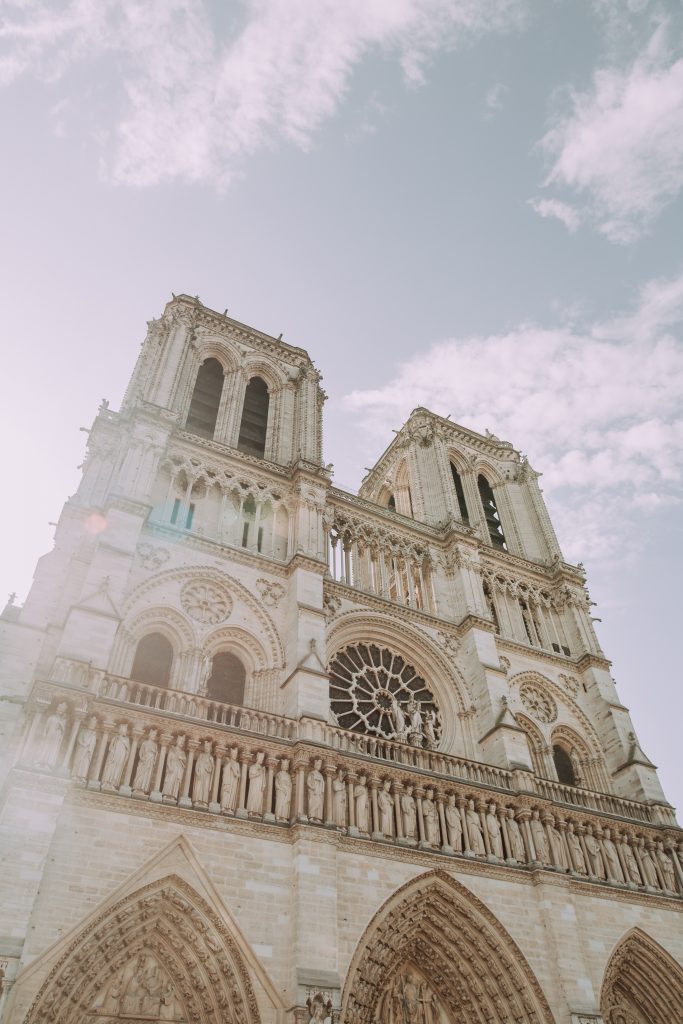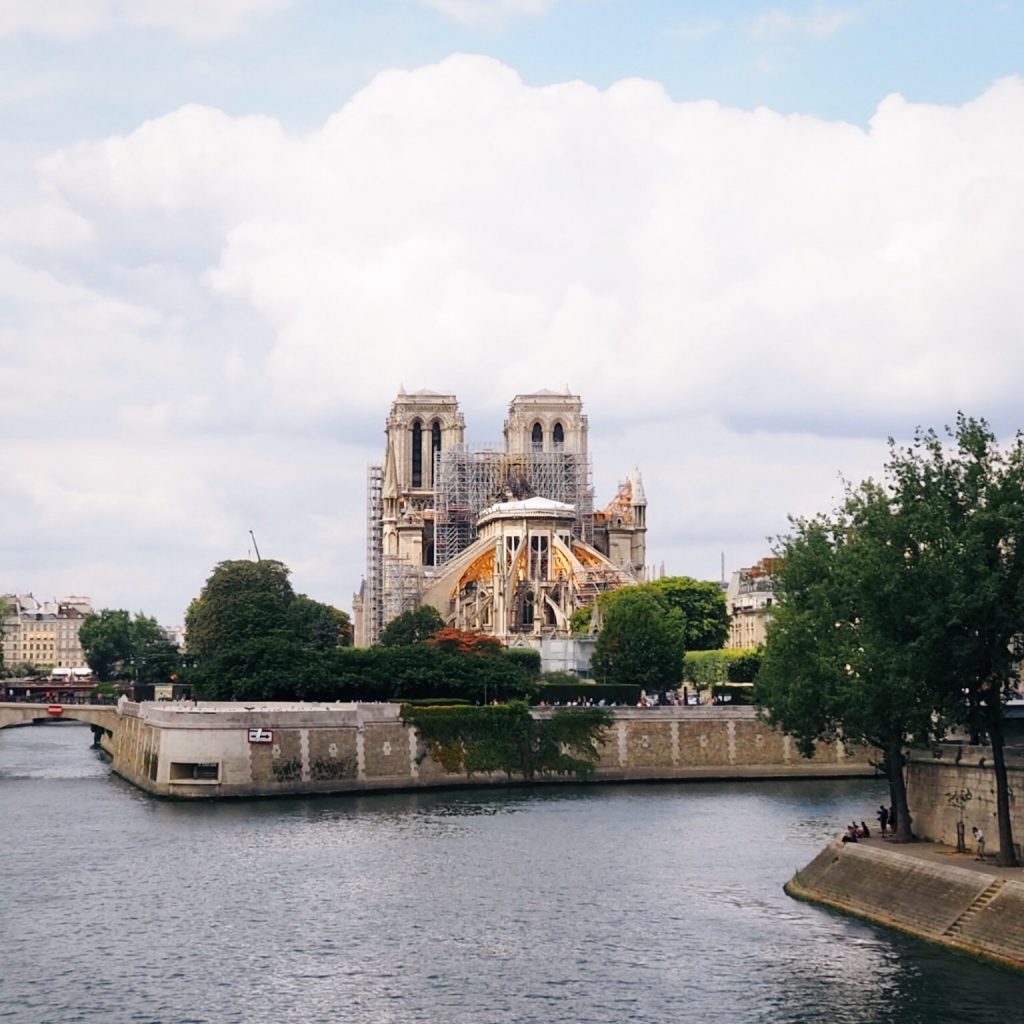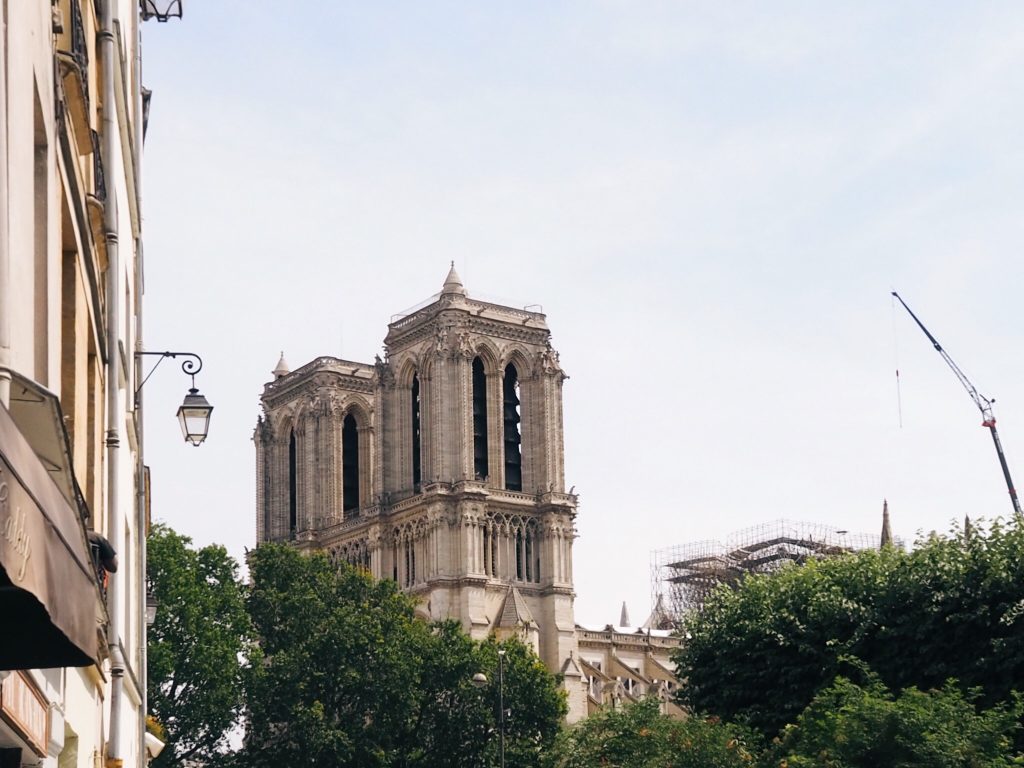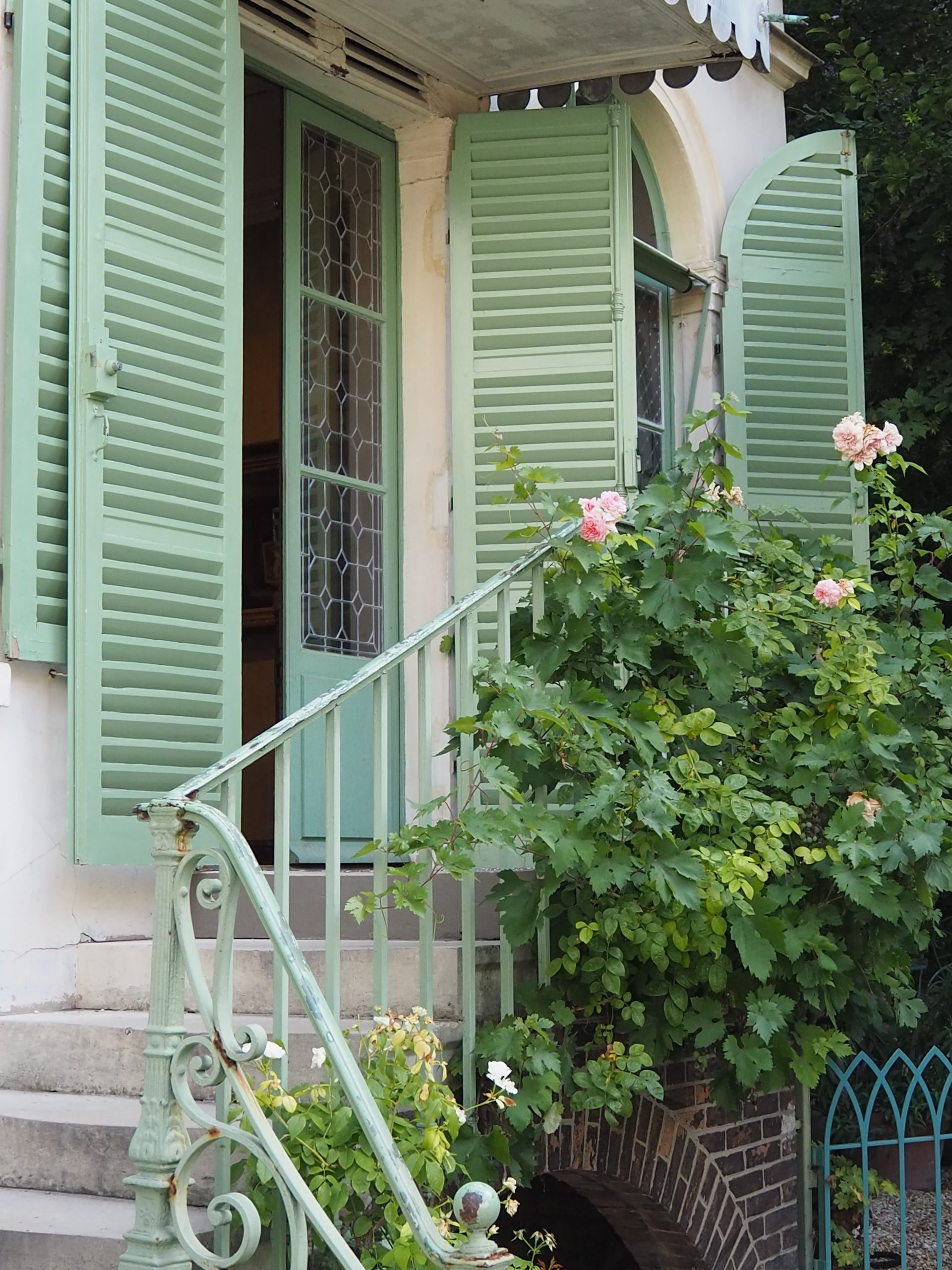Some thoughts on the fire of Notre-Dame in 2019

Joshua Humphrey via Unsplash
Is it wrong to grieve for a building when there are so many terrible things going on in the world right now?, I asked myself, even as I feverishly refreshed my phone to check the news reports of the fire at Notre-Dame on the evening of Monday 15th April, 2019.
A jewel of medieval architecture, 850 years of history, going up in flames as the world looked on in helpless horror.
My sadness that this special building would never be the same was tinged with guilt as I anticipated the comments, posts, and articles that would inevitably follow, berating people for paying more attention to the fate of a building than they do to the daily suffering and struggles (visible and invisible) of people all around them. They would have a point: many significant and terrible acts of violence, injustice, and destruction happen all over the world every day. Many causes that deserve our attention, time, energy, and money don’t get those resources, at least not with the same speed, focus, or magnitude that Notre-Dame attracted them.
After the flames were extinguished and the damage could be assessed, money started pouring in, most of it donated by just a few elite French families competing for the honour of funding the restoration one of the most iconic buildings in France. Much of the building remained relatively unharmed, though the spire, most of the roof, and some of the upper walls and interior was destroyed or badly damaged.
The posts from public figures and social media users expressing sadness and shock about the accident came and went. And yes, as anticipated, the criticism from people who believed the whole thing attracted far more air time and money than it deserved washed over us. We moved on.
Still, something about the sadness I felt when the fire raged, along with that lingering question about the legitimacy of my feelings, bothered me, and I kept thinking about it. When I saw the scaffolding covering Notre-Dame on our recent trip to Paris, I went over the question again, and tried to unpack it a little in my mind.

Notre-Dame being rebuilt after the fire in 2019
Firstly, I keep coming back to this: what good does it do to shame someone for how they’re feeling? Sure, feelings have consequences (sometimes even harmful or dangerous ones) and we need to examine them in the light of this, but surely we shouldn’t be too quick to condemn our feelings or the feelings of others before we understand them and their potential consequences. The way we feel can be used to harden our hearts or open them up, depending on our response and the response of those around us.
When poet Charly Cox took aim at what she saw as the superficial and privileged reaction to the fire at Notre-Dame, she dismissed the sadness not only of gap year tourists and people wealthy enough to travel or donate to the cause of repair, but also the sadness of people for whom Notre-Dame is an important place of worship, a spiritual refuge, and meaningful symbol.
Why does it have to be either or, when we’re all complex human beings who are capable of caring about many different things? Why does it have to be the case that we either love Notre-Dame and feel a sense of bereavement and significance about the fire, or we care about war/hate crimes/climate change/racism/[insert another important and worthy issue here]? That we value history, or we want to make the present and the future better? Why can’t it be both?
What if, at times like this, instead of feeling guilt or shame, we could get curious about our reaction, and figure out what we can learn about it? What can we learn from our collective reaction to the fire at Notre-Dame?
For one thing, that it’s possible to raise millions for a cause within mere days, with a certain type of global news coverage, and a clear problem with a clear solution (re-building is a finite project with a definable and tangible end result).
Is there a useful takeaway from this, that could help stir the wealthy into action in other situations? Can we unite around other causes in a way that crosses political lines and evokes a sense of national pride about providing financial help? How can we make our news coverage better? (These are open questions that I don’t have answers to, but I think they’re interesting, important, and worth exploring.)

Notre-Dame being rebuilt after the fire in 2019
The world’s reaction to Notre-Dame shows what a powerful motivator love is. Perhaps one of the most important things we can learn from this is that if we want to bring about change or rally support for a cause, we need to help people fall in love with something rather than try to guilt them into action. We need to fall in love deeper, with more things, causes, people…
We learned that many of us treasure our culture’s connection with the past, that preserving old things matters, that there are things we can learn from our history, and that there is value in the past as well as the present and future.
We learned that a deep part of us longs for beauty and a return to slow craftsmanship. That our culture has lost something in its rush for speed and efficiency, and that there’s something to be admired and missed about a time when people did things slowly and with great care, sometimes spending a lifetime working on a project that they would never see completed, but having faith in something bigger than themselves.
And that night many of us also learned what it feels like to see a beloved place of worship and deep cultural and symbolic significance destroyed or harmed, an experience that the people of Syria have sadly suffered through for years. Perhaps the shock and sadness that we feel about events like this can flow out and deepen the wells of empathy within us for people living with war, natural disasters, or violence of any kind.
Maybe, by honouring how we feel when something like this happens, by giving ourselves room to feel that way without judgement or shame, we can become more awake to the experience of others. Because there’s one thing I know for certain: approaching our reactions with curiosity and empathy instead of judgement and self-loathing sets us up much better to relate to others, care about problems, and passionately seek solutions.

